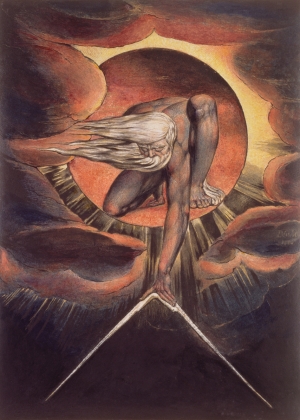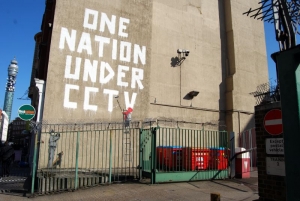
The struggle never ends
Like all artists, musicians enhance the quality of our lives, and expand the cultural commons which we need as much as the air we breathe. Chris Wood has developed into one of the most socially aware songwriters in Britain, and Mike Quille caught up with him during his latest British tour.
MQ: Who are the people who've influenced you most, musically and politically?
CW: The answer to both those questions is - Anon. I grew up listening to folk song and I have to say, it's all there. Our folk songs are a vast repository of wisdom, and are about a history that has largely escaped the airbrush of the establishment. In fact the establishment works quite hard to have us believe that our folk music is not cool, that it is silly and naïve, which a great deal of it is.
But in amongst the fol-de-rols there are works of exquisite genius and great wisdom. Tales of cruelty and injustice, inventiveness and stoicism, love and fortitude. Above all folk music reminds me that, whatever is thrown at us, we abide.
MQ. You won the BBC Folk Award for the song None the Wiser, a melancholy but devastatingly insightful song about the way things are these days. Can you tell us something about the background to the song?
CW: None The Wiser was written on the Joan Armatrading tour bus during a 60 day tour. I remember Elvis Costello saying that he quickly realised if he didn't learn to write while touring he wasn't going to get anything written.
Every morning we'd wake up in a different town and I'd have the whole day to hang out in town centres and coffee shops. I soon realised I was getting a privileged opportunity to observe Britain in the throes of Austerity. Much more immersive than any politician on a 'battle bus' - with or without a lie painted on the side.
I remember a guy whose job was as a 'first on the scene' aircraft crash specialist. He said the first crash he attended he couldn't see any bodies and then, he started to realise there was a piece of something there and another piece of what looked like something there, a smear here and a shape there, the horror that slowly came upon him as he 'got his eye in' was a moment he'd never forget.
Well, without attempting to sound too dramatic, I had a similar experience as I spent time hanging out in town centres the length and breadth of the British Isles. I started to get my eye in, and my ear too. I'm sorry if it's a bit gritty for some people but pretty much all of what takes place in that song happened.
MQ. The way you've arranged and sing Jerusalem is unusually downbeat and reflective. How far do you identify with Blake’s ‘mental fight’ to ‘build Jerusalem in England’s green and pleasant land’?
CW: I woke at 4am one day, with Blake's half-remembered words in my head, so I looked them up. For the first time in my life I encountered the words, not sung by the crowd at the Last Night of the Proms, but as the poet had intended, on the page. It was an epiphany, and two things struck me.
Firstly, the first verse consists not of triumphal statements, but of four questions, to which the answers are all No.
And secondly, that this was a 4am poem. It's not the voice of many, it is a solitary voice. It's the voice of a human reaching into himself to find a reason to carry on. The voice of a man shaken by the depth of indifference the world has for him and all that he believes in.
I managed to get back to sleep but I awoke with a new tune in my head. I'm not trying to sell my thinking or my work here but this setting seems to me to more closely honour the poet.
I know what Blake means – the struggle never ends.
MQ. What’s the music business like these days, for working musicians?
CW: The business is brutal, but I think it always has been. That said, I wouldn't want to do anything else. I asked a fellow music biz worker what would he do if he won the Lottery, and he replied ‘exactly what I'm doing now, but ruder! I love what I do but love is, as they say, blind.
If I could click my fingers and make one change I would have loads more women in the business. It's far too blokey. I'm not so much talking about the principal artists but the backing musicians, crew, producers, promoters, mix engineers etc. Whenever I encounter women in these areas of the industry they are not only, of course, highly accomplished but have a hugely positive effect on the men around them.
MQ: How's your current tour, the So Much to Defend Tour, going?
CW: Well, a few years ago the industry decided to make music available, effectively, for free. The public responded wholeheartedly and now we find we have an industry which is, how shall we put this... fluid.
But you still find people talking like nothing has really happened. So an innocent question like, "When's the album out?" actually means – when will we be able to get what you've been pouring your heart, soul and life savings into for the past three years, for free?
This of course is not isolated to musicians. Driving jobs employ the most males in the western world, and yet the driverless car is only about 4/5 years away. Even lawyers, god bless ‘em, are looking over their shoulders as legal search sofware becomes ever more refined.
So the perfectly reasonable question ‘How's the tour going?’ actually translates as something like - now that your recordings are worthless I expect you're playing every gig you can get?
MQ. Finally, in ‘Trespasser’ you lament the Enclosures, the process of privatising and commercialising the commons, which as you say happens with cultural products like music as well as land. So what’s your thinking on what the way forward should be?
CW: It’s a human fault to always feel that the times through which we’re living are somehow special. There’s nothing particular or special about where we are at the moment. All of history’s archetypes are present – the avaricious, the ignorant, the helpless, the blind, the unquestioning, the naive, the cynical, the jaded, the selfish, the acquisitive, the self-righteous and so on.
Personally, I try to vote with my money. I’ve never been in debt to anyone but a building society. I avoid multinationals, I try and source my needs from my community and keep the VAT down to an absolute minimum. The allotment is a massive part of our life.
And of course there’s the songwriting!
Chris Wood is currently on tour, for dates and venues see http://chriswoodmusic.co.uk/gigs/. This is an extended version of an interview published by the Morning Star.


